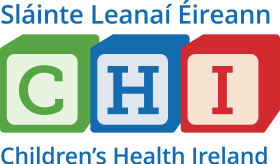Use of Tranexamic Acid for Dental Procedures: Information for Dentists
The dental and haematology teams will discuss each child’s situation.
The information below is relevant to children that require the administration of tranexamic acid (Cyclokapron) for dental procedures which are likely to cause gingival or apical bleeding.
How do I prescribe it?
The primary care dentist is well placed to prescribe tranexamic acid. The patient’s weight in kilograms is needed to calculate the dose. The recommended dose is 25 mg/kg, rounded to nearest 250mg, (maximum of 1.5g), 8 hourly. It is commenced the night before the procedure, is continued 8 hourly for 5 days. The medication comes as a 500mg tablet, and these can be broken into two. The liquid preparation is generally not recommended, as it is difficult to get in the community and is very expensive.
What other precautions can I take?
The other usual haemostatic supports should include:
- the use of local anaesthetic with adrenaline
- firm pressure for 5 minutes post-extraction
- the use of resorbable haemostats, such as Surgicel
- the use of a suture
A suture is not always required. Following dental extraction, use firm pressure with damp gauze for at least 5 minutes, and then re-evaluate. At that stage, a suture can be placed, should be it be required, along with packing the socket with Surgicel, if necessary.
What procedures do not require haemostatic support?
Examination, radiographs, fluoride treatment, fissure sealants, supragingival scaling/polishing, restorations that only require infiltration of local anaesthesia do not require haemostatic support. As an alternative to an inferior dental block, the buccal infiltration of articaine is a suitable technique for anaesthetising the lower molars for restorative procedures.
Why does treatment locally benefit the patient?
Being able to have all routine dental treatment carried out locally is of great benefit to patients. It avoids the need for hospital visits, and allows the patient to have care as close to home as possible. It empowers the patient and their family by removing a barrier to dental care in the community. It aids the transition to adult services by mirroring the current recommendations for adult patients with bleeding disorders.
Who can I ask if I have questions?
If you have questions, please do not hesitate to contact the dental team or the child’s haematology team in CHI Crumlin for advice. If questions arise regarding adult dental services for this patient, please direct these to our dental and haematology colleagues in the National Coagulation Centre in St James’s Hospital.
Use of Tranexamic Acid for Dental Procedures Information for Dentists
